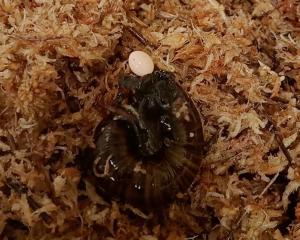West Coast iwi claim the Crown is planning to inflict the biggest land grab on South Islanders since the colonial purchases.
They said the proposed National Policy Statement for Indigenous Biodiversity could have up to 35% of private land — including Maori reserve land —reclassified by councils as significant natural areas (SNA) and removed from private control.
The chairmen of the two Coast iwi, Makaawhio and Ngati Waewae, Paul Madgwick and Francois Tumahai, said yesterday they had seen multiple generations of government policies alienate whanau from their land and resources.
They would strongly resist any attempts by the Crown to inflict the same ‘‘removal of property rights’’ on the West Coast community.
‘‘When you dispossess people of their land, regardless of the colour of their skin, it drops those people into poverty,’’ the men said in a joint statement.
‘‘Long-term, intergenerational poverty that is near-impossible to recover from.
‘‘We know that not just from our own history in Aotearoa [North Island] and Te Wai Pounamu [South Island], but from colonial history across the world.’’
Poutini Ngai Tahu considered it eye-opening that a government in this day and age would consider effective confiscation of land and income a valid policy, they said.
The te reo term for confiscation was ‘‘raupatu’’ and the proposed NPSIB was a dressed-up form of raupatu, they said.
In the North Island, the New Zealand Settlements Act 1863 allowed for confiscation of land without compensation. Maori-owned land was turned into national parks in places like Te Urewera by legislation.
In Te Wai Pounamu, Ngai Tahu sold land in various purchases under the banner of ‘‘all people are equal no matter the colour of their skin’’ but was ripped off by colonial governments that never held up their end of the bargain, they said.
In 1944, the State introduced the Town and Country Planning Act which ensured Maori could not use what little rural land they had left to house and provide for their whanau.
As late as 2003 with the Foreshore and Seabed Act, the Crown had actively used legislation to remove property rights, the men said.
‘‘While, as kaitiaki of the environment, we do support the protection of indigenous biodiversity, we are also looking out for the whanau in our community. We are concerned that the draft NPSIB will force councils into exercising wide-ranging powers in reclassifying land as SNAs, without much in the way of filters.
‘‘We would be happy to work with the Crown on the development of the NPSIB but we won’t allow land to be locked up in conservation estate and our communities punished. Poutini Ngai Tahu knows too well that land is very difficult to get back once in the hands of the Crown.’’
Conservation Minister Eugenie Sage was in the top of the South Island yesterday and not immediately contactable for a response.
Associate Minister for the Environment Nanaia Mahuta’s office said it did six case studies on Maori land which could be affected by the proposed policy statement.
Under the proposed statement, landowners would be able to carry out existing and new activities with limits, they said.
‘‘Where existing activities have been lawfully established before the [national policy statement] came into force, these activities can continue so long as the impact to the SNA doesn’t increase.
‘‘They will only need to do something and incur costs if they want to change the way they do something within the SNA, thereby triggering a resource consent process.’’
They were seeking feedback from landowners on the proposal and the associated costs they thought they might incur.













